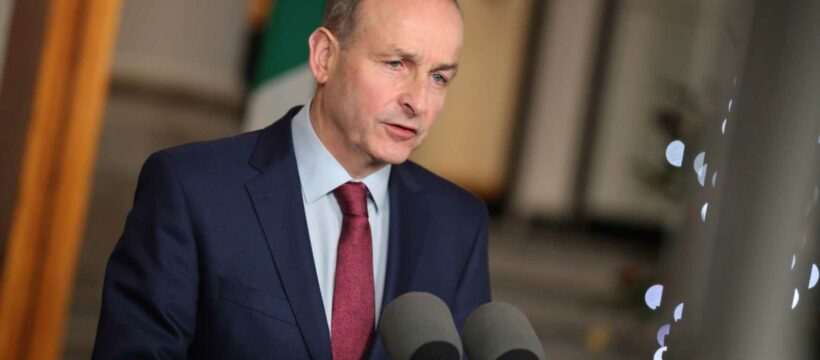NIGHTCLUBS will close and social distancing in pubs and restaurants is being reintroduced in Ireland to stem the spread of Omicron before Christmas.
Table service will return for diners and boozers, with indoor capacity at sports events and concerts slashed to 50 per cent to tackle the new Covid variant and drive down cases.
Indoor mixing will also be cut to a maximum of four households over Christmas with Covid passports required at gyms in the Republic of Ireland.
The restrictions start on December 7 and last until at least January 9, with businesses affected offered financial support from the government.
It comes as experts fear Omicron will become dominant in the UK and spark a surge of cases in the unvaccinated, causing tougher restrictions here.
In a televised address, Irish Taoiseach Micheal Martin said "while restrictions on travel are useful to delay the entry of new variants, it is impossible to stop them".
Mr Martin said: "The challenge we face is that while we have stabilised the surge of cases in the country, the daily case numbers are still very high.
"Case numbers tonight sit at over 5,000.
"The increased social mixing that normally comes with Christmas would put that under pressure in any case.
"But if Omicron takes hold and if it is more transmissible, the potential for a very serious crisis is obvious."
He added: "The risks associated with proceeding into the Christmas period without some restrictions to reduce the volume of personal contacts is just too high."
Pubs, hotels and restaurants face a return of punishing Covid curbs over Christmas and the New Year after they were relaxed on October 22.
🔵 Read our Omicron variant live blog for the latest news
The restrictions include having one metre between tables in bars and restaurants and a limit of six people per booking.
Multiple table bookings have been banned and people must wear masks at all times unless eating or drinking.
The Republic of Ireland has one confirmed Omicron case, but Mr Martin cited South Africa, where cases have rocketed from 300 to 16,055 today in just a few weeks.
He told the hospitality and entertainment sector "the government will stand by them and ensure that they have the financial supports necessary to weather this latest storm and to stay intact until we are out of it."
If Omicron takes hold and if it is more transmissible, the potential for a very serious crisis is obvious."
The new rules won't apply across the border in Northern Ireland.
Travellers to Ireland must have a negative PCR test within 72 hours of departure or a negative lateral flow test 48 hours beforehand.
The new travel rules were criticised by Ryanair boss Michael O'Leary as "gobbledygook".
Omicron has been detected in at least 38 countries, with case numbers low so far compared to the dominant Delta variant but expected to grow.
NEW YEAR FEARS
In the most impacted parts of South Africa, from where the strain was first reported to the World Health Organisation (WHO) on November 24, there has been a sharp increase in hospital admissions, officials say.
Experts are exploring how much immune escape the variant has from prior infection or vaccines and its effect on illness and death.
The first real-world study of Omicron found it's at least 2.4 times more likely to reinfect people who've already had Covid.
Scientists in the UK estimate that one in 300 new infections are now due to the super-mutated bug, up from one in 1,000 around a week ago.
Experts say it could be enough to put pressure on the NHS, given that five million people are unvaccinated, and Omicron may potentially weaken vaccines.
Prof Christina Pagel, a mathematician and professor of operational research at University College London, told The Sun: "or the unvaccinated, I think January and February will be the riskiest time of the month since the start of the pandemic.
"There will be a lot of infection around and not very much protection, and everyone will be out and about mixing.”
Source: Read Full Article


